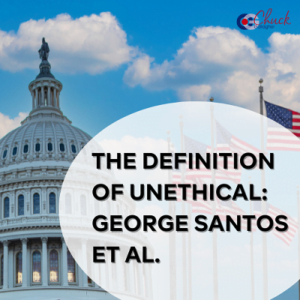 Recent events surrounding George Santos have highlighted the deeply unethical behaviors that can sometimes permeate the echelons of power. Drawing from detailed reports by Reuters and The New York Times, this article seeks to unpack the scandal surrounding Santos and his associates, exposing how their actions undermine public trust in our institutions.
Recent events surrounding George Santos have highlighted the deeply unethical behaviors that can sometimes permeate the echelons of power. Drawing from detailed reports by Reuters and The New York Times, this article seeks to unpack the scandal surrounding Santos and his associates, exposing how their actions undermine public trust in our institutions.
Reuters revealed a shocking development: a close aide to George Santos was charged with fraud and impersonating a top congressional aide. The audacity of such an act is only amplified by the boldness of its execution. This behavior speaks to the lengths that some individuals, blinded by their proximity to power and privilege, will go to further their interests.
However, this is only one facet of the larger picture. The New York Times has provided an exposé on George Santos’s financial disclosures — or lack thereof. In an era where transparency is paramount, particularly for those in public service, Santos seems to have hidden a labyrinth of financial entanglements. Such omissions breach the trust placed in our public figures and question the integrity of our governance structures.
The hidden financial interests present a potential conflict of interest for Santos. These undisclosed assets could intersect with policy decisions and debates. It raises a pressing question: Who is Santos truly representing? His constituents or his covert financial interests?
Moreover, the nature of the undisclosed financial interests – as The New York Times reported – suggests a web of convoluted investments and backdoor dealings. Such complex economic structures often serve a singular purpose: to obfuscate and confuse, ensuring that the average observer cannot easily trace money flow.
But why would someone in Santos’s position risk it all? Power, influence, and unchecked ambition often create a false sense of invulnerability. The audacious acts committed by his aide, and Santos’s own seemingly deliberate oversight, illustrate a narrative that is all too common in modern politics: the belief that one is above the rules that govern the masses.
In many ways, the tale of George Santos and his associates serves as a cautionary tale. It is a stark reminder of the vigilance required to keep our institutions honest and the need for stringent checks and balances. As society grapples with myriad challenges, from economic upheavals to socio-political unrest, it is paramount that the individuals entrusted with power are held to the highest standards of ethics and integrity.
The implications of this scandal are wide-reaching. It’s not just about one individual’s wrongdoings but the erosion of trust in our democratic institutions. When public figures fail to uphold the very principles they purport to represent, it shakes the foundation of our society. It fosters cynicism and disillusionment among the electorate.
In conclusion, the revelations surrounding George Santos and his circle serve as a poignant reflection on the state of ethics in contemporary politics. They underscore the need for relentless scrutiny of our leaders, rigorous transparency standards, and a collective commitment to ensuring that public service remains a noble endeavor untainted by personal greed and ambition.


